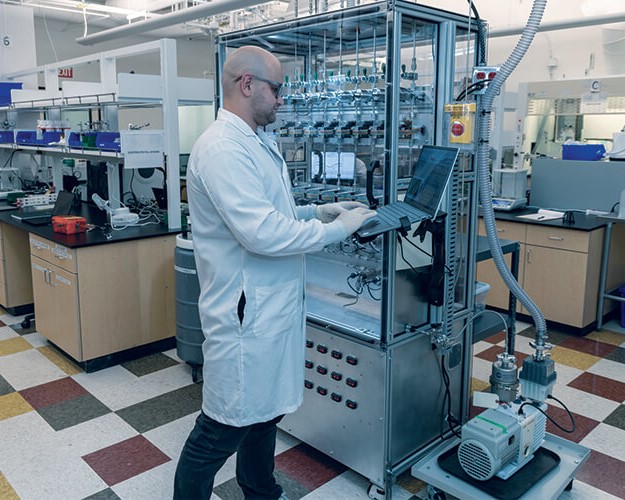Porsche Ventures has recently invested in South 8 Technologies, a San Diego-based startup, aiming to revolutionise electric vehicle (EV) battery performance in cold weather. This investment, in the form of a SAFE note, will be part of South 8’s upcoming Series B funding round. The infusion of capital highlights Porsche’s interest in advancing battery technology, particularly for cold-weather applications.
Electric vehicles often struggle in cold weather, where traditional lithium-ion batteries face performance issues. Cold temperatures cause the liquid electrolyte inside the batteries to thicken, slowing charging rates and increasing power consumption by heaters. This was evident in Chicago last January, where many Tesla drivers found their vehicles unable to charge during a deep freeze.
South 8’s revolutionary technology
South 8 Technologies offers a groundbreaking solution by using a pressurized, liquefied gas electrolyte instead of a liquid one. This approach prevents the electrolyte from freezing until -100 degrees Celsius, far beyond the freezing point of other solvents. CEO Tom Stepien explained, “At -40 degrees Celsius, we retain 75% of the energy capacity. Everything else is a brick.”
Significant cost savings for automakers
If South 8’s technology proves effective, it could significantly reduce battery production costs. “The battery costs about a third of the entire car,” Stepien noted. The company’s innovative manufacturing technique can reduce the size and cost of critical battery factory components, potentially lowering overall costs by 30%.
Investment from Porsche Ventures
Porsche Ventures’ investment underscores the potential of South 8’s technology. Although the exact investment amount remains undisclosed, this funding will support the scaling of South 8’s operations. Stepien emphasised Porsche’s interest in the low-temperature performance of their batteries, stating, “They want to keep their finger on the pulse of where things are headed.”
Technical innovations and manufacturing challenges
South 8’s core technology, known as LiGas, uses a gas most commonly employed as a refrigerant, likely difluoromethylene (R-32). Integrating this pressurized electrolyte into the cells poses several challenges. Currently, the technology works only with cylindrical cells, such as those used in Teslas, Rivians, and Lucids, due to the need for stronger end caps and a redesigned top cap with an injection valve.
Most automakers use prismatic or pouch cells. While the technology might eventually apply to prismatic cells, pouch cells remain unsuitable due to their lack of rigid structure. This limitation poses a significant adoption hurdle given the extensive investments in existing battery manufacturing infrastructure.
Enhancing manufacturing efficiency
Despite these challenges, South 8’s technology promises significant gains in manufacturing efficiency. The formation cycle, a critical step where cells are first charged and discharged, can be reduced by 90%. “Our standard protocol here was about 100 hours for cells we make for our customers. We’ve done tests and seen no difference in performance with 10 hours,” Stepien said.
Addressing environmental concerns
South 8’s electrolyte uses a potent greenhouse gas with over 600 times the global warming potential of carbon dioxide. To mitigate this, battery recyclers will need to develop new protocols to safely handle the gas, similar to those used for air conditioning and refrigerator compressors, though on a much larger scale.
A game-changer for cold-climate EVs
South 8 Technologies’ innovative approach to battery design could be transformative for EVs, especially in cold climates. If the company can navigate manufacturing and environmental challenges, their liquefied gas electrolyte technology could enhance EV performance, reduce costs, and offer substantial climate benefits by improving battery efficiency and reliability.
This breakthrough underscores the importance of continued innovation in EV technology, paving the way for more reliable and cost-effective electric transportation solutions in diverse climates.



